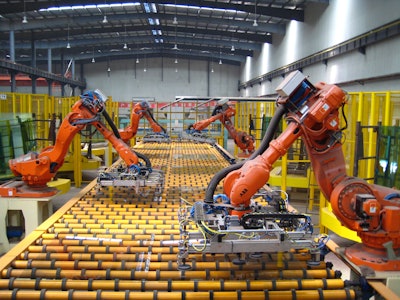
Quite frequently when people talk about the increasing presence of robots in manufacturing, they also raise a topic that strikes fear throughout workers the industry: the robots are going to take our jobs away.
While the use of robots and automation will undoubtedly drive down labor costs and streamline the factory process, it doesn't mean we will see the imminent death of human labor. In fact, the increase in robots can create a considerable number of jobs — just maybe not in the way you expect.
“Historically, technology has created more jobs than it destroys and there is no reason to think otherwise in this case. Someone has to make and service all these advanced devices,” says Vint Cerf, vice president and chief Internet evangelist for Google.
As always, with change comes discomfort. New and innovative things can be difficult to accept because frequently, this new process or tool is replacing an outdated one. While manufacturing is going to see some potentially uncomfortable change — including very likely job cuts in the "traditional" sense of the industry — it will improve the overall process, as new technology usually does.
Furthermore, jobs will be created to build, maintain and program these robots -- the demand for them will increase the production of them, creating jobs in itself.
Still, experts in the field are nearly torn in half about what this means for the industry. A 2014 Pew Research Center survey shows 48 percent of experts believe robots will displace a significant number of jobs and cause severe economic issues by 2025, while 52 percent believe technology will not displace more jobs than it creates.
So, what do you think?
Is losing some jobs worth changing and improving the process? Who wins in this situation, and who loses? Comment below or tweet me @BetheABM.






















